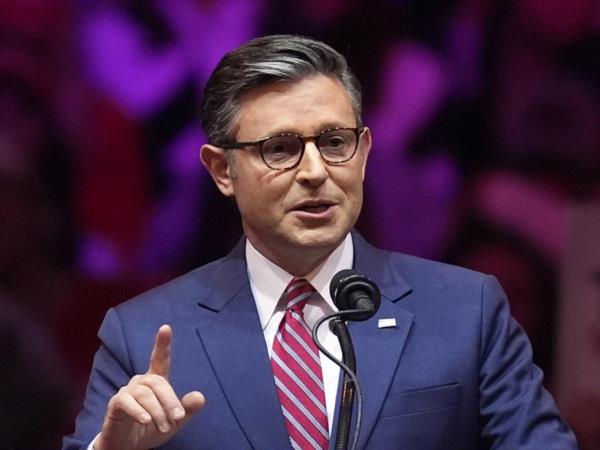
House Speaker Mike Johnson is facing a challenging situation as he seeks to secure the speaker's gavel in the 119th Congress. With a narrow 219-215 GOP majority, Johnson must navigate potential opposition within his own party to retain his position.
One key detractor, Rep. Thomas Massie, R-Ky., has already announced his intention not to vote for Johnson. This means that Johnson can only afford one more defection before falling below the 218-vote threshold required for victory.
The House speaker election is a crucial first step in the new Congress, as it sets the tone for the legislative agenda moving forward. Until a speaker is chosen, important proceedings such as the swearing-in of members to the 119th Congress are put on hold.
If Johnson fails to secure the necessary majority, he will likely engage in a process of lobbying Republican holdouts and making concessions to garner support. This cycle will continue until Johnson either wins the required votes or a new Republican challenger emerges.



The timing of the speaker election is significant, as the House and Senate are scheduled to meet on January 6 to certify the results of the 2024 presidential election. Given the importance of this event, it is unlikely that Republicans would risk delaying the process by failing to reach a consensus on the speaker vote.
Former President Trump has also entered the fray, reaching out to potential dissenting voices in an effort to drum up support for Johnson's reelection. This external pressure adds another layer of complexity to an already tense situation within the GOP.
As the House prepares for the crucial speaker vote, all eyes are on Johnson and the delicate balance of power within the Republican Party. The outcome of this election will not only determine the leadership of the House but also shape the legislative agenda for the 119th Congress.







